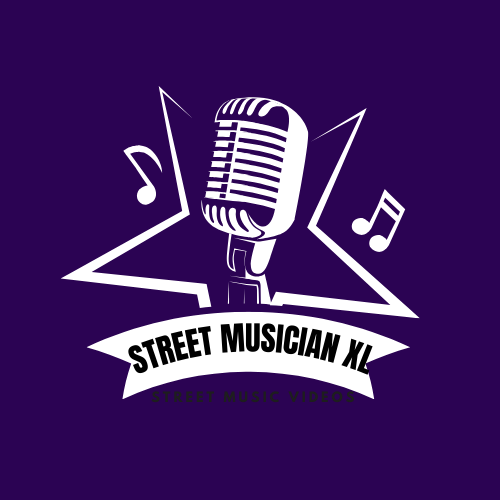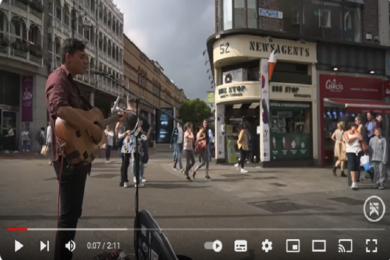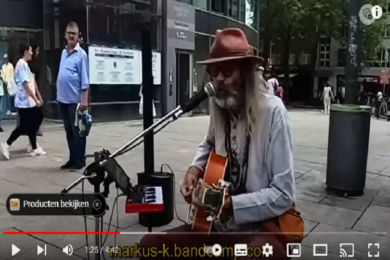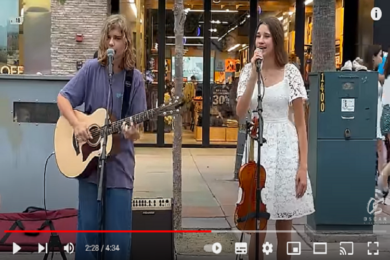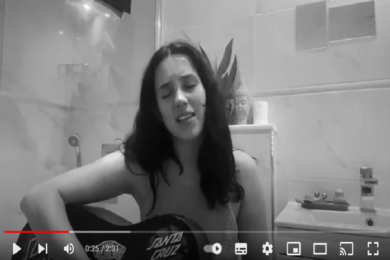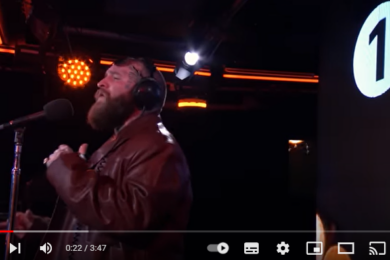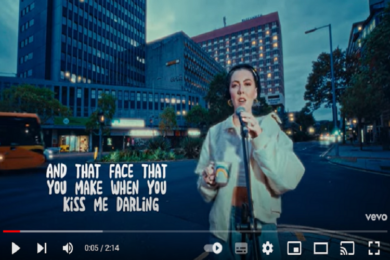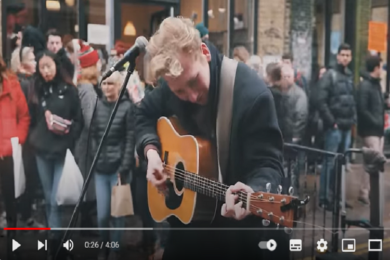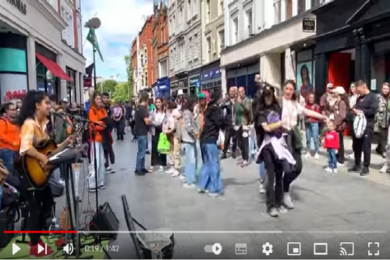‘Long live pop’: Pop music, street music, and the power of public performance
Pop music is whatever the people enjoy. Meaning that the best pop music artists always have a powerful sway over their audiences. No other type of music is more sure to help a street performer stir the emotions of passers-by. We’ve all been stopped in our tracks at some stage by an arresting version of a popular song, delivered unassuingly on the streets of a city. Whatever pop music is, it can contain immense power and captivate many people.
So, how exactly do we define pop music?
In today’s world, the definition of pop music can be anything. The term ‘pop music’ was used to describe the commercial success of several rock, soul, and R&B acts in the 1950s and ‘60s - from Elvis Presley to the Beatles to the Rolling Stones. An actual genre of music wasn’t what was being described - it was literally to do with the popularity of the acts.
However, as more and more wannabe ‘pop artists’ began imitating their early pop heroes, this type of music came to have more of a firm definition. Pop music is about: catchy riffs, simple chords or beats, memorable lyrics which audiences will latch onto, and a powerful voice (or voices) delivering the lyrics. If the pop artist has dynamite good looks, and a charismatic personality to boot…well, that helps too!
Over the years, pop music has been closely aligned with different, prevailing genres which were popular at the time. Throughout much of the late 20th century, pop music was aligned with varying types of rock music. In the 21st Century, pop music has incorporated elements of hip-hop and dance music.
At its heart, great pop music will always defy easy classification and will not stick to specific genres.
The pop artist as street performer
Thanks to the inherently appealing nature of pop music (literally, “popular music”), pop songs are often ready-made for good street performances. Singers who busk on the streets often incorporate plenty of well-known pop covers into their setlists, as a surefire way of getting crowds onto their sides.
Some of the main building blocks of pop songs are the catchy, memorable lyrics and melodies, so pop artists performing good covers of these tunes are able to wow audiences with a lot less difficulty than, say, a busker who performs an experimental jazz piece…
If you’ve ever heard pop classics like Oasis’ ‘Wonderwall’ or Van Morrison’s ‘Brown Eyed Girl’ being covered by buskers on the street, you’ll know exactly what we mean.
Successful pop artists who busked at some point in their careers
There are numerous stories of successful pop artists who began their careers as buskers, from Ed Sheeran to Tracy Chapman. We can even go back further and point to some legendary music acts whose careers were kickstarted by their street performances. The likes of George Michael started by busking on the streets of London, covering Queen songs with his unforgettable voice. Similarly, Rod Stewart’s music career began all the way back in the early ‘60s, when he busked on the streets with a harmonica in tow.
Successful pop artists will also return to busking even after they’re famous, as a way to bring joy to the streets they’re performing on and also a way to reconnect with their audiences on a very personal level. In Dublin, on Christmas Eve, several of Ireland’s most popular music acts will participate in a charity street performance on Grafton Street, often in front of thousands of people. The Christmas Eve busk is usually helmed by U2’s Bono, with Irish pop acts like Dermot Kennedy and Glen Hansard having joined the singer over the years.
Street performance in the modern era
Today, street performers and budding pop artists have more opportunities than ever to achieve success. This is for several reasons. For one thing, performers have greater access to all the musical tools they need to deliver live shows in public spaces. Guitars, drums, kits, microphones, PA systems, amps, loop pedals, and other music tech kits are all widely available, meaning that performers don’t have to jump through extra hoops in order to get started.
For another thing, many cities are actively encouraging buskers to take to the streets. Whereas, in previous eras, local councils and officials might have had more conservative views about busking in public spaces, most cities now consider it a net benefit to their streets. The best buskers are often given pride of place on main city streets - allowing them plenty of chances to build an audience and earn money from generous passers-by.
And for a third thing, social media and streaming have meant that pop artists who turn to street performance can often find viral success when they least expect it. The internet is full of stories of buskers whose powerful live performances have seen them go viral on sites like YouTube, Instagram, TikTok and Facebook. Pop singers often have more opportunities to achieve viral fame than artists from other genres, as their pop music covers and impressive vocals tend to connect with people in very effective ways. A cover of Lady Gaga’s ‘Shallow’ might net 1 million views in the space of a few weeks, while a performance of ‘Hotel California’ by the Eagles could get as many as 40 million views if it properly dazzles…
Conclusion: Street music can often be a pop artist’s ticket to success
Pop music allows performers to engage with their audiences in a uniquely accessible way. Street performers and buskers will often cover popular songs in order to strike a chord with passers-by. Or, even if they perform their own tracks, many street performers will adhere to pop music’s central tenets - using emotive chords, catchy riffs, simple melodies, and straightforward, evocative lyrics in order to appeal to as many people as possible.
Pop music can help performers grow their fanbase in very rapid ways.
